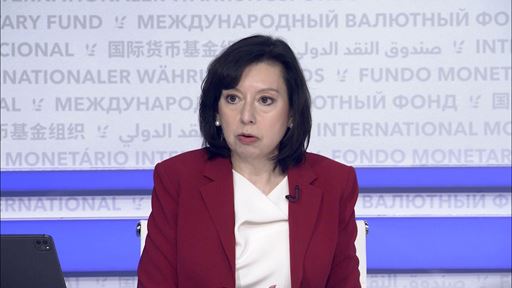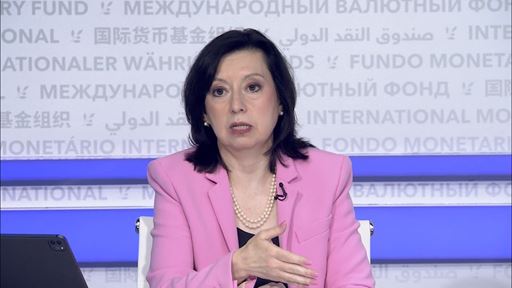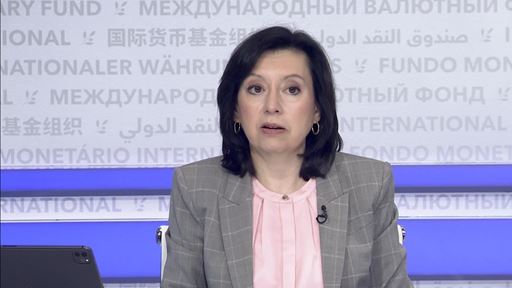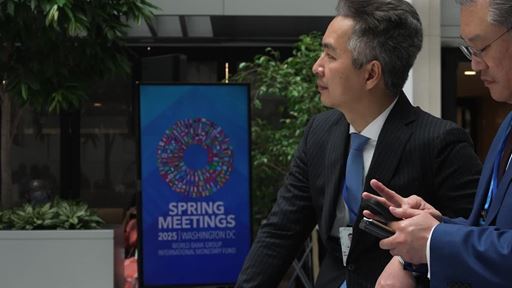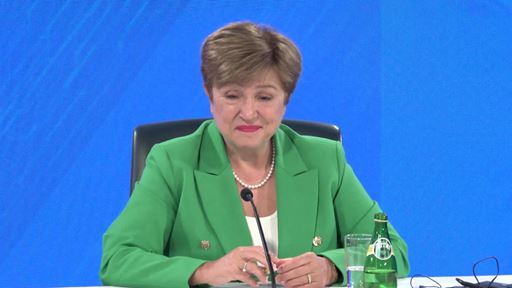Global financial conditions have tightened notably and downside risks to the economic outlook have increased as a result of the war in Ukraine, the IMF announced Tuesday (April 19) with the release of the Global Financial Stability Report.
“The key theme to our latest Global Financial Stability Report is the implications of the war in Ukraine on the global financial system. The report provides analysis of the underlying risks and transmission channels in the short and medium-term, in light of financial system vulnerabilities that were already in existence.
The report shows how higher commodity prices—together with prolonged supply disruptions—have made pre-war inflationary pressures worse.
The war has also caused spikes in volatility across asset classes, reflecting greater uncertainty about the underlying global economic outlook.
As of now, the war is not seen as a “global systemic event” that poses an immediate threat to financial stability. However, the war is having repercussions globally—and through various channels, including through the rising commodity prices, food insecurity, and exposures of financial institutions to Russian and Ukrainian assets,” said Tobias Adrian, Director of the Monetary and Capital Markets Department at the IMF.
After rising early in the year on concerns about the inflation outlook, advanced economy nominal bond yields have increased further since the invasion, amid heightened volatility of rates
“Since the beginning of the year, financial conditions have tightened significantly across most of the world. Rising inflation, together with the rapid decline in equities’ prices[GG1] and the expectation of rate hikes, have led to a notable tightening in advanced economies and in some emerging markets with close ties to Russia and Ukraine.
The challenge for central banks, in advanced economies in particular, will be to bring inflation back to target while avoiding an excessive tightening of global financial conditions that would put their economies’ growth at risk.
Emerging markets face an especially challenging environment going forward. Inflationary pressures were already high before the war in many economies across Latin America and Eastern Europe. But emerging and frontier markets now also face higher risks of capital outflows, as investors re-assess their exposures to emerging markets in light of US monetary policy tightening and the heightened geopolitical uncertainty.
European markets also face special challenges in the current environment given the dependence on energy trade with Russia,” said Adrian.
The war in Ukraine has brought to the fore a number of medium-term structural issues policymakers will need to confront in coming years, including the possibility that the geopolitics of energy security may put climate transition at risk; the risk of fragmentation of capital markets and possible implications for the role of the US dollar; the risk of fragmentation in payment systems and the creation of blocs of central bank digital currencies; more widespread use of crypto assets in emerging markets; and more complex and bespoke asset allocations in an effort to preempt the possible imposition of sanctions.
“Policymakers need to remain vigilant. Although there has been no material systemic event so far, financial stability risks have risen, as have risks to the post-pandemic economic recovery. We see four areas for action:
Central banks should act decisively to prevent inflationary pressures from becoming entrenched. They should also avoid a situation where inflation expectations become “unmoored”—by that I mean a situation where everyone expects to see continued high inflation.
In emerging markets, policy normalization should continue to be based on country-specific assessments of inflation and economic outlook as well as commodity price effects.
Globally, regulators should assess the implications of increased volatility in commodity markets on how the markets are functioning and on how risk is managed.
Lastly, policymakers should intensify their efforts to implement the roadmap laid out by the 2021 United Nations Climate Change Conference—or COP26—while also addressing energy security concerns,” said Adrian.
To read the full report, click here.
[GG1]Nassira, given recent developments on equities prices, is this still ok?


